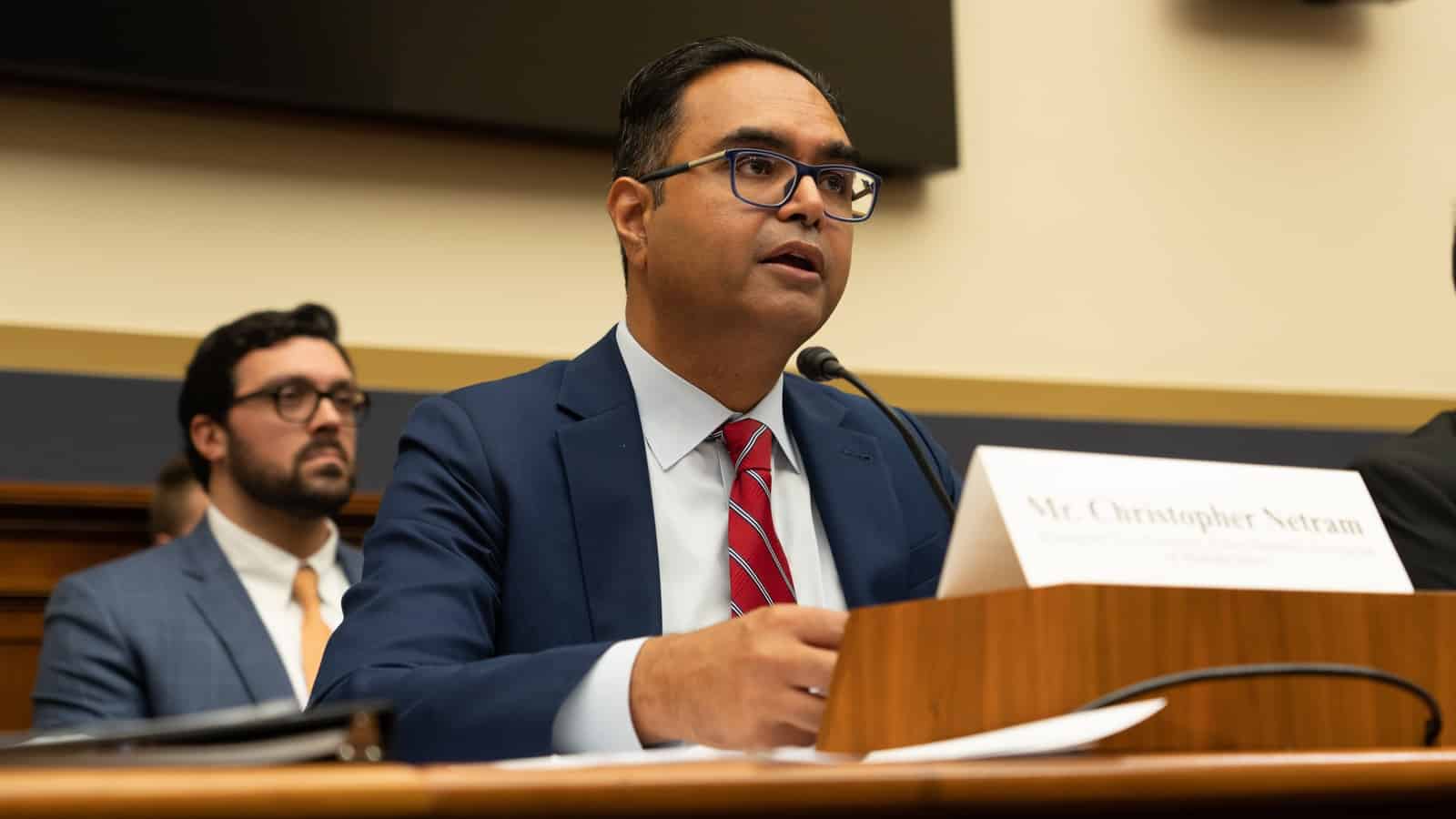NAM Testifies at ESG Hearing

The House Financial Services Committee held a hearing yesterday titled “Reforming the Proxy Process to Safeguard Investor Interests”—and NAM Managing Vice President of Policy Chris Netram was there to represent manufacturers. The committee is in the middle of a monthlong series of hearings on environmental, social and governance topics and other issues related to the proxy process.
The background: Manufacturers often face challenges from politically motivated activists who use the proxy voting process to gain attention for issues unrelated to the companies’ success, and from a Securities and Exchange Commission that has empowered these activists.
The topline: At the hearing, Netram called on Congress to rein in the SEC’s regulatory overreach, keep activists out of the boardroom and protect Americans’ investments in manufacturing growth.
- “Focusing on financial returns helps businesses grow and safeguards investors’ retirement security,” said Netram. “But in recent years, third parties have hijacked the proxy process to distract companies from this duty: activists use the proxy ballot to advance political and social agendas, proxy firms dictate corporate governance decisions, and the SEC is empowering these groups—while also proposing ESG disclosure mandates of its own.”
Depoliticizing corporate governance: Netram called on Congress to stop activists from abusing the proxy ballot to pursue social and political agendas. That means preventing the SEC from forcing companies to include irrelevant proposals on their ballots, and instituting further reforms like making it harder for activists to resubmit the same unpopular proposals regularly.
- “Turning the proxy ballot into a debate club diverts time and resources away from shareholder value creation and forces companies to wade into controversial topics over which they have no control,” said Netram. “Congress must prevent the SEC from forcing companies to include irrelevant proposals on their ballots.”
Reining in proxy advisory firms: Netram spoke about the need to restrict the outsized influence that proxy advisory firms exercise on corporate governance, including by protecting investors from conflicts of interest, enforcing antifraud standards, limiting robo-voting and requiring proxy firms to engage with impacted businesses.
- “Despite their power, proxy firms operate with minimal regulatory oversight—and the SEC has rescinded modest protections that were adopted in 2020 to inform and protect investors,” said Netram. “This means that the firms’ conflicts of interest, errors and lack of transparency go largely unchecked.”
Pushing back on ESG disclosure mandates: Netram also called on Congress to limit the SEC’s ESG reporting rules by requiring only material disclosures from public companies rather than demanding far-reaching information that increases costs for manufacturers and overwhelms investors.
- “Investors need material information to make informed investing decisions and grow their retirement savings,” said Netram. “Instead, the SEC has proposed far-reaching mandates that won’t inform investors—but will harm manufacturers. Congress must limit the SEC’s regulatory onslaught.”
The last word: “Politically motivated activists are pursuing inflexible ESG agendas with little regard to their impact on everyday Americans’ financial security—and the SEC is increasingly a partner in their effort,” said Netram.
- “If this trend is allowed to continue, then small manufacturers will be hardest hit. I’ve spoken to NAM members who are deeply concerned about potentially losing public company customers or facing insurmountable regulatory costs because they just can’t keep up with ESG.”
